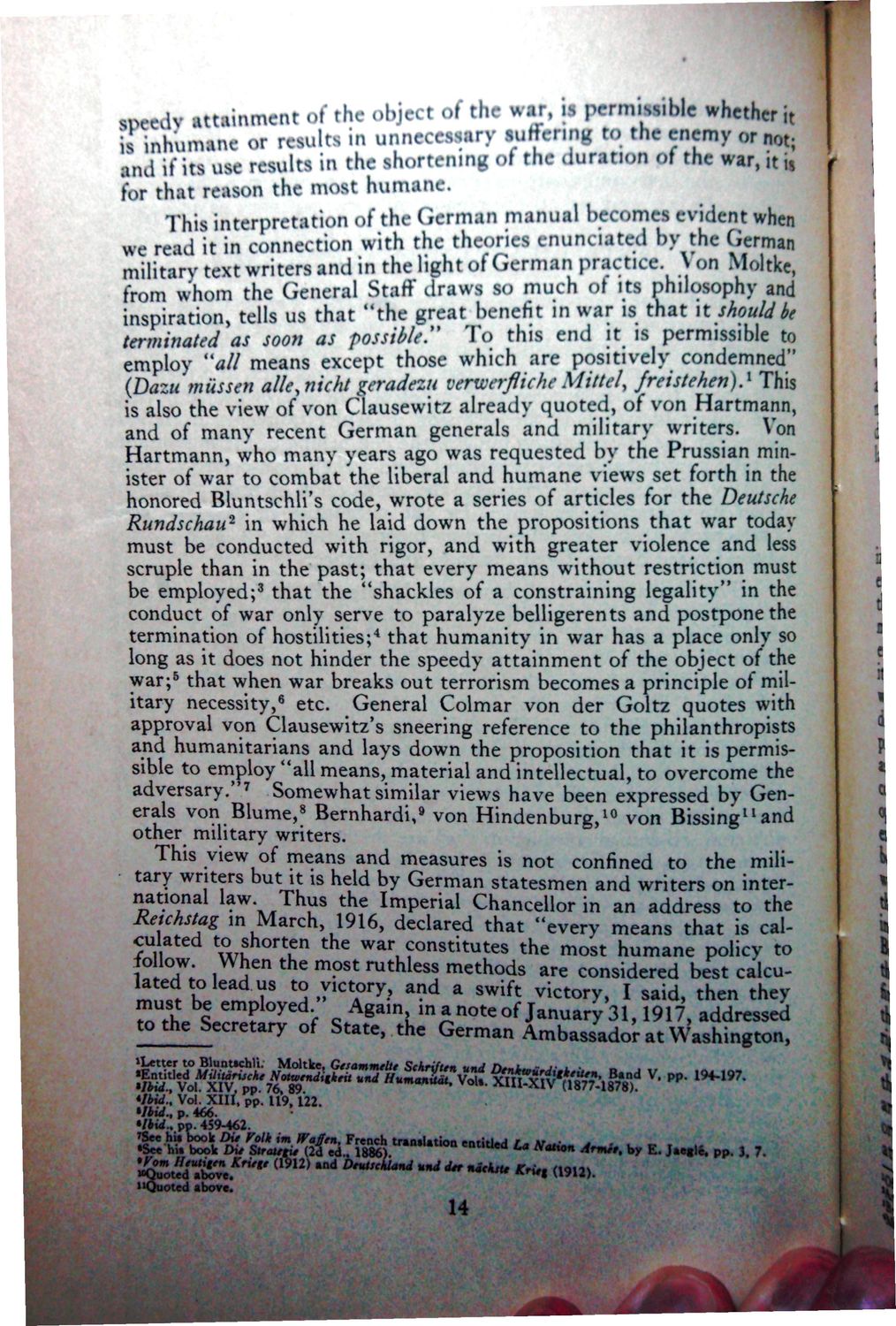| |
| |
Caption: War Publications - WWI Compilation 1923 - Article 14
This is a reduced-resolution page image for fast online browsing.

EXTRACTED TEXT FROM PAGE:
spcedv attainment of the object of the war, is permissible whether nnecess the for that reason the most humane. This interpretation of the German manual becomes evident when we read it in connection with the theories enunciated by the German military text writers and in the light of German practice \ on Moltke, from whom the General Staff draws so much of its philosophy and inspiration, tells us that "the great benefit in war If that \t should be terminated as soon as possible." To this end it is permissible to em (Dazu miissen alley mcht geradezu verwt yflichc Mittely /; m is also the view of von Clausewitz already quoted, of von Hartmann, and of many recent German generals and military writers. Von Hartmann, who many years ago was requested by the Prussian minister of war to combat the liberal and humane views set forth in the honored Bluntschli's code, wrote a series of articles for the Deutsche 2 Rundschau in which he laid down the propositions that war today must be conducted with rigor, and with greater violence and less scruple than in the past; that every means without restriction must 3 be employed; that the "shackles of a constraining legality" in the conduct of war only serve to paralyze belligerents and postpone the 4 termination of hostilities; that humanity in war has a place only so long as it does not hinder the speedy attainment of the object of the 5 war; that when war breaks out terrorism becomes a principle of mil6 itary necessity, etc. General Colmar von der Goltz quotes with approval von Clausewitz's sneering reference to the philanthropists and humanitarians and lays down the proposition that it is permissible to employ "all means, material and intellectual, to overcome the 7 adversary/' Somewhat similar views have been expressed by Gen8 10 u erals von Blume, B e r n h a r d t von Hindenburg, von Bissing and other military writers. This view of means and measures is not confined to the military writers but it is held by German statesmen and writers on international law. Thus the Imperial Chancellor in an address to the Reichstag in March 1916, declared that "every means that is calculated to shorten the war constitutes the most humane policy to follow When the most ruthless methods are considered best calcuS ry a d a swift victoI 1 J ™t ZJ£^ *A ™A° -' ? T , sa d, then they must be employed. Again in a note of January 31,1917, addressed to the Secretary of State, the German Ambassador at Washington. *lbid Vol XIII, pp. U9.122. l lbid.% p. 466. •Ibid., pp. 459-462. 'Sec hit book Dit Folk im fVaffen, French translation +nt\*\~A r - *r • e n t l U e d La Natxon •Sec hi. book Dii Strategic (2d ed.. 1886). +** 9 "Quoted above. JoZu^:c! CrifSe (ftl2> t n d * X E. Jae f I*. pp. j > * * * « " ' -*» ** * * * * * , (1912). 14
| |